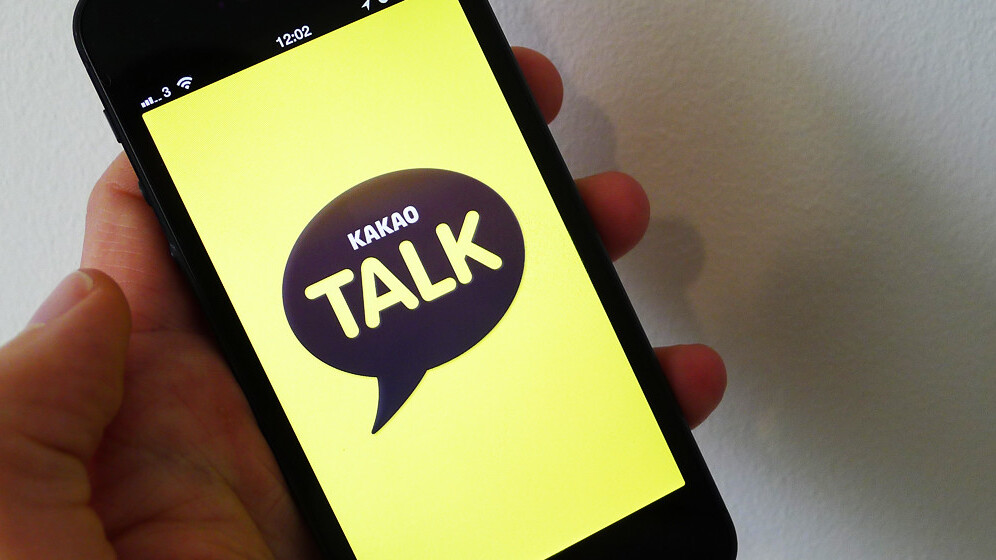
There’s something about messaging in Asia. Today, Korean mobile messaging service Kakao Talk announced it has passed 100 million registered, becoming the latest messenger in the region to pass the impressive milestone.
Kakao says the service passed the landmark this morning, three years and three months after it was launched, thanks to a growth spurt that saw it land 10 million users over the last two months. However, it lags Japan’s Line which has 150 million users and WeChat in China which has 300 million-plus users.
Kakao Talk recently told us that its users send 5.2 billion messages per day, which is impressive albeit some way behind market-leader WhatsApp, which recently set a new record of 27 billion messages processed in one day.
The 100 million figure is impressive for Kakao Talk because the service is predominantly used in Korea, which has a population of just 50 million, though Kakao claims its messenger has a 90 percent install rate among domestic users. The company has ambitions to grow its international presence, and it recently partnered with Evernote to let its users easily save messages and moments to the note-taking service.
The company makes money through Kakao Talk in a number of ways.
Like Line, Path and others, it sells stickers — rich emoticons that are available in packs of a dozen for $1/$2 — while it provides an API that lets publishers make their games social on the Kakao Talk platform and provides a virtual currency for buying items. That’s something US-based Tango recently implemented.
The Kakao Talk service also allows brands to open official accounts which are promoted to users and can push promotional messaging, links and content to Kakao Talk users that opt to receive them.
Kakao Talk’s gaming service has been particular strong. The company recently confirmed to TNW that the platform is seeing more than $30 million worth of revenue per month — that figure is split between Kakao, publishers and Apple/Google which own the iOS and Android platforms.
The Korean firm is expanding its messenger with the recent launch of a PC-based client, while it launched an Android launcher app — in the style of Facebook Home — initially just for users in Korea. Kakao Home crossed 1 million downloads just two weeks after its it went live; that’s faster than Facebook Home.
Kakao Talk is not the company’s only product. It also runs a Path-like social network called Kakao Story, Kakao Poll and photo-focused Kakao Album. It also recently launched Kakao Pages, which aims to be a marketplace for content creators.
So what is it about mobile messaging that makes the likes of WhatsApp, Line and Kakao Talk so big in Asia?
Each service has initially found traction in its home market, and they are rivaling social networks like Facebook because they are mobile-first and specifically designed around communication. Addition hooks and incentives are provided by features like gaming and virtual items and — using the network effect — these three services are seeing their popularity spread across other parts of Asia and into other continents too.
Headline image via TNW, others via Kakao Talk
Get the TNW newsletter
Get the most important tech news in your inbox each week.
![[Graph] KakaoTalk Passes 100M Users](https://cdn0.tnwcdn.com/wp-content/blogs.dir/1/files/2013/07/Graph-KakaoTalk-Passes-100M-Users-520x641.jpeg)





